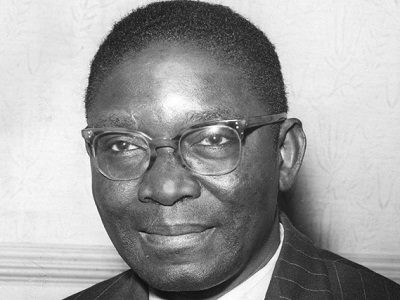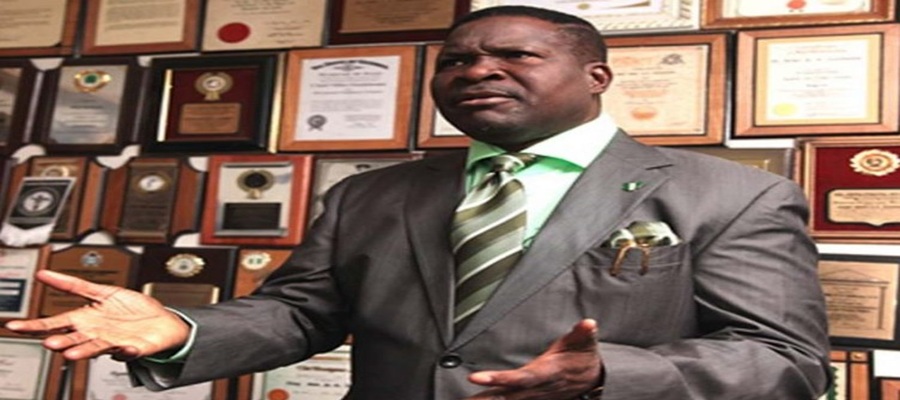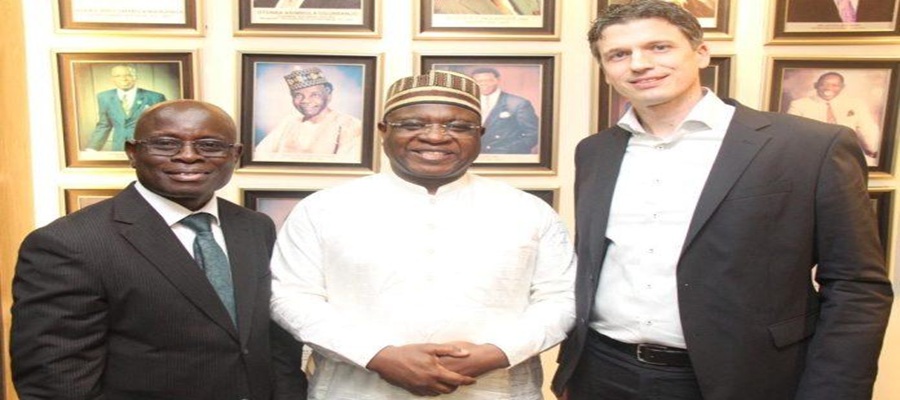News
100 Years and 100 Interesting Facts about Nigeria

Nigeria’s century compilation was created as a historical snapshot of peculiar events, for our benefit and that of Nigeria’s younger generations.
It was compiled to the best of our ability and influenced by our learning, recollection and prejudices.
We invite Nigerians to collect and share with us more important and unique events that define 100 years of Nigeria.
Resources utilized here can be found on ENDS.ng.
1. Nigeria, with a 2013 estimated population of 174,507,539 is the most populous Black nation and the 7th most populated nation in the entire world, trailing after—from least to most—Pakistan, Brazil, Indonesia, USA, India and China (1.3bn).
2. Nigerians are 1/5th the total population of Black Africa.
3. Nigeria, with 521 languages has the fourth most in the world. This includes 510 living languages, two second languages without native speakers and 9 extinct languages.
4. The Portuguese reached Nigeria in 1472. In 1880 the British began conquering Nigeria’s south. The north was conquered by 1903.
5. Wole Soyinka is a Nigerian Nobel laureate. He wrote ‘Telephone Conversation!’
6. With a net worth of $16.1bn, Nigeria’s Aliko Dangote is the richest Black person in the world.
7. Yoruba and their bloodlines worldwide have the highest rate of twinning (having twins) in the world.
8. The 2006 Census found Nigerians to be the highest educated ethnic or racial group in America.
9. The Northern knot, Arewa insignia has Christian origins, investigation by Ibraheem A. Waziri revealed. It is adapted from the Church Celtic knot.
10. Pre-tribalism: Malam Umaru Altine, a northern Fulani man was the first elected Mayor of Enugu, in the east, and was even re-elected for a second term.
11. Pre-tribalism: John Umoru, from Etsako in today’s Edo State (Western region) was elected for the House of Assembly to represent Port Harcourt in the Eastern Nigerian House of Assembly.
12. The Colonial Cantonments Proclamation of 1914 established ‘foreign quarters,’ ‘Sabon Gari,’ institutionalizing the Sabon Garuruwa system of ‘foreigner’ residential segregation in Nigeria.
13. Crispin Curtis Adeniyi-Jones (1876-1957) who the street in Ikeja, ‘Adeniyi-Jones’ was named after, was a medical director from Sierra Leone (a Saro). As a co-founder of NNDP, he won one of the Lagos 3 legislative council seats in 1923 and represented Nigerians for 15 yrs.
14. Saros was the name given to 19th and 20th century ‘Creole’ African literati migrants from Sierra Leone.
15. Amaros was the name for repatriated Brazilian and Cuban slaves; the ‘Aguda’ people of Lagos today. This Brazilian community includes deportees of the brave “Malê Revolt” in Portugal.
16. British colonization was not all voluntary ‘happy slave trade,’ but involved brutal terror against non-cooperation and stiff opposition. Captain Lord Esme Gordon Lenox, ‘With The West African Frontier Force,’ describes: “…we stormed down to Amassana, which was a town supposed to be friendly and fined them 25 goats and 20 chickens for non-assistance, then returned to Agbeni and burned half…October 1st was spent in continuance of yesterdays incendiraism by burning every town or farm we could see. I shudder to think of how many houses we have destroyed in these two days. On our way back to Egbbeddi in the afternoon we passed by Sabagreia and told our old friend Chief Ijor that most likely we should burn down Sabagreia the next day…”
17. Nigeria’s population was just 16 million in 1911. It is projected to hit 444million by 2050, surpassing the US and becoming the 4th largest in the world.
18. The population of Lagos today is about more than the total population of all Eastern states combined.
19. Lagos’ population in 1872 was 60,000. By 2015 it will be the third largest city in the entire world.
20. Nigeria’s north (719,000 sq. km), occupies 80% of Nigeria’s land mass. In size it is four times the South.
21. 1st republic Aviation Minister, Chief Mbazulike Amaechi hid former South African President, Nelson Mandela, for six months in Nigeria to evade his arrest by the apartheid regime.
22. Gangsta: In 1984 under the disciplinary Buhari/Idiagbon government, there was a sophisticated attempt to kidnap and repatriate ex-civilian regime minister of transport, Umaru Dikko from the UK, anesthetized in a freight crate, for the embezzlement of $1bn under the Shagari regime.
23. Valor: Part of the ‘Forgotten Army,’ Nigerians volunteered to fight with the allied forces among the 81st and 82nd West African Divisions, in the Second World War.
24. The Adubi war in 1918 was a major uprising by 30,000 Abeokuta Ebga warriors against the colonial government for colonization, taxation and slave labor. One British was killed and rail and telegraph lines destroyed. The British rewarded their soldiers with medals for quelling the uprising. Awape Adediran a Molashin/ Kingmaker was imprisoned for his active involvement.
25. Activist Mrs. Fumilayo Ransome-Kuti travelled widely, including to the Eastern bloc (Hungary, USSR and China where she met Mao Zedong). These interactions angered Nigeria, Britain and America. America called her a communist and refused her a U.S. Visa.
26. Mrs. Fumilayo Ransome-Kuti, legendary Fela’s mother, was one of the delegates that negotiated Nigeria’s independence in Britain.
27. Once upon a time, the north was the more literate part of Nigeria. According to Lord Luggard, there were 25,000 Qur’anic Arabic schools with about 250,000 pupils in the north.
28. Sardauna of Sokoto said he preferred foreign workers to Igbo’s because he felt Igbo’s are domineering. This was while Nigeria existed as regions with regional administrations.
29. Kaduna Nzeogwu killed Sardauna in Nigeria’s first military coup.
30. In 1966, a mischievous Igbo owned bakery allegedly made a loaf of bread with a label that depicted Nzeogwu as the Saint in the ‘Saint George and the Dragon’ medieval tale, killing Sardauna, the ‘dragon,’ this labeled bread provoked deadly anti-Igbo riots.
31. Idrîs Aloma (1571-1603) King of Kanem-Bornu went on pilgrimage and came across firearms. He brought some guns back, along with Turks to train his army on how to use them.
32. Travel Visa was not required to travel to the United Kingdom till 1984.
33. A brand new car sold for N2000 in 1975. A ticket to London was less than N100 in 1975.
34. In 1976, 75 kobo exchanged for one British Pound and 60 kobo for one US dollar.
35. A dollar was 90 kobo at the beginning of Babangida’s tenure in 1985.
36. Nigeria took its first loan from the World Bank in 1977.
37. Obasanjo’s first term and Babangida’s regime oversaw the weakening of the naira.
38. General Buhari and Idiagbon rejected IMF demands that Nigeria devalue its currency.
39. Babangida’s coup in 1985 was invaluable to the colonialists suspected to have been in support as it led to Nigeria accepting SAP restrictions, loans and crippling foreign monetary conditions.
40. Nigeria has 5 of the 10 richest pastors in the entire world, with net worth’s according to Forbes, from $10-150 million. They are Pastors, David Oyedepo, E. A. Adeboye, Chris Oyakhilome, Mathew Ashimolowo and Temitope Joshua.
41. Nigeria has the 4th highest number of poor, living under a dollar a day in the entire world. 100 million are ‘destitute’ according to figures from the NBS (National Bureau of Statistics).
42. Nigeria, the 3rd biggest economy in Africa is 160th out of 177 countries in HDI (Human Development Index).
43. Nigeria has the highest paid legislators in the entire world.
44. Based on amount squandered, of an income of $81 billion per year, Nigeria is the most corrupt nation in the world.
45. The nation with the most defrauded people, aka ‘mugus,’ in history, is Nigeria. Successive administrations continue to loot a greater percentage of the nation’s wealth, running in hundreds of billions of dollars.
46. Nigeria in 2013 was rated the worst country to be born based on welfare and prosperity projection.
47. Aliko Dangote funded Presidents Obasanjo, Yar’Adua and Jonathan’s 4th republic campaigns. Buhari rejected funding from Dangote.
48. Usman dan Fodio (1754–1817) was trained in classical Islamic science, philosophy and theology and wrote over 100 books on society, culture, religion, governance and politics. He could only declare Jihad when he was made leader in Gudu {In Islam you can only declare Jihad if you are an official Muslim leader}.
49. The Borno Empire rejected Dan Fodio’s colonization jihad. Al-Hajj Muhammad al-Amîn ibn Muhammad al-Kânemî not only militarily defended his Empire, but also did so by religious, theological, legal and political debates, challenging why a Muslim Empire should colonize another.
50. Kano history has it that a great warrior princess Magajiya Maimuna led her cavalry from Zaria to conquer Kumbwada.
51. Kumbwada in Kano today is ruled by Queen Hajiya Haidzatu Ahmed, who presides over up to half a million subjects. A throne curse which makes men sick and die, keeps males off the throne. {Sadly, the woman ruled Kumbwada is the least funded chiefdom in Nigeria}.
52. Ivory Coast (Côte d’Ivoire) is Nigeria’s leading trade partner in Africa.
53. There are several Nigerian officials in the government of English speaking The Gambia.
54. There is a Nigerian origin, Yoruba chief in Accra. Chief Brimah is the only foreign Chief with a seat in the Ghanaian traditional council.
55. Cross River State: The Ejagham (Ekoi) people in the Southeast are believed to have originated the Nsibidi (Nsibiri) writing system which later spread to the Efik, Igbo, Ibibio, Efut, Banyang and Annag peoples.
56. Discovered in 1928, Nigeria’s North and North Central region hosts West Africa’s oldest civilization; the Nok civilization which flourished between 1000 BC and 300 BC. {Nok sculptures recently went on display disappointingly in Germany (not Africa).}
57. Finished in 1460 the Benin Iya or moat is a historic world defense wonder. Spanning 1,200 kilometers with walls as high as 18 metres, it is the world’s largest archeological structure.
58. Sungbo’s Eredo in Ogun state (6°49′N, 3°56′E) is a 100 mile system of up to 70 ft trenches and walls around Ijebu-Ode. It’s Queen, Bilkisu Sungbo has been attributed to the Biblical Queen Sheeba (Queen Bilkis in Quran).
59. Lord Lugard estimated in 1904 that there were 170 walled towns still in existence in the whole of just the Kano province of northern Nigeria. He described Kano: ‘Commercial emporium of the western Sudan.’ Of its wall, he said, ‘I have never seen, nor even imagined, anything like it in Africa.’
60. Osun: Queen Luwo, the twenty-first Ooni (ruler) of Ile-Ife paved the streets with quartz pebbles—and broken pottery, in 1000AD. The architecture had decorations that originated from Ancient America.
61. Borno: The capital city of Kanem-Borno, Ngazargamu, was one of the largest cities in 1658 AD; the metropolis housed “about quarter of a million people” and had 660 well planned, wide and unbending streets.
62. In 1246 AD the Kanemi of Borno created a sensation in Tunisia when he sent a gift of a giraffe to Al-Mustapha, king of Tunis.
63. Sokoto: Two-story buildings with constructions glazed with tsoluwa, (laterite gravel), 10 mile circumference city walls, some as high as 20 feet, is how 16th century Surame, a Sokoto metropolis created by empire ruler, Muhammadu Kanta Sarkin Kebbi, was. UNESCO describes Surame as “one of the wonders of human history, creativity and ingenuity.”
64. Kano: In 1851, this city, one of the largest in Africa, made 10 million sandal pairs and 5 million hides for export every year.
65. Kebbi: Nigeria’s Sorko Sea lords of Kebbi state, made ships (Kanta) which were used for far away expeditions, including the 1311 AD, 2000 ship, famous voyage of Songhai Empire’s Mansa Abubakari II to the America’s, decades before Columbus.
66. Yobe: The oldest discovered boat in Africa, and 3rd oldest on the world, the 8500 yr old Dufuna canoe was discovered by a Fulani herdsman in 1987 in Dufuna village, Fune LGA.
67. Ondo: Confusing evolution scientists, the 13,000 yr old Iwo-Eleru cave skull, the oldest human fossil remains found in West Africa, has ‘ancient’ (140,000 yr old Laetoli) features, yet lived in more modern times.
68. Benin Kingdom: The high quality and highly sophisticated bronze work of the Benin Kingdom dating as far back as the 13th century is a world wonder. Great works in iron, wood, ivory, and terra cotta products also highlight the empire’s history.
69. Benin Kingdom: Lourenco Pinto, captain of a ship that carried missionaries to Warri in 1619, described Benin kingdom, ‘Great Benin where the king resides is larger than Lisbon, all the streets run straight and as far as the eyes can see….’
70. Akwa Ibom: King Jaja of Opobo (1821–1891) founded Opobo city-state in 1867 and shipped palm oil to Britain independently of British middle men.
71. Ancient Greeks appear to have Nigerian roots as supported by the Benin Haplogroup or Haplogroup 19. According to Jide Uwechia, ‘The Benin Haplotype (which originates from Nigeria, West Africa) accounts for HbS associated chromosomes in Sicily Northern Greece.’
72. Ilorin’s Oba Afonja utilized Fulani warriors to help rebel against the Oyo Empire. The warriors after defeating Oyo took over Ilorin and Sheikh Alimi, their leader became the first Emir.
73. Much of north Nigeria was part of the Songhai Empire. Muhammad Kanta annexed Kebbi and other states between 1512 and 1517.
74. The Obasanjo military regime converted Nigeria from a Parliamentary system to a Presidential system of government.
75. Much of traditional pre-colonial Nigeria operated a parliamentary form of government. The council of elders could make or impeach the King.
76. General Johnson Thomas Umurakwe Aguiyi-Ironsi on 24 May 1966, with Decree No. 34, dissolved Nigeria’s regions, creating provinces. He unified Regional Public Services under a single Commission. Riots were provoked in Kano and mutiny in Abeokuta; eventually there was a coup.
77. In 1967 Gowon split the four regions into 12 states.
78. Gowon’s Decree No. 8 of 1967 after the Aburi conference restored Nigeria as a confederacy.
79. Late President Murtala Muhammed’s dad, Pam Azatus Iyok was from Dogon-Gaba, near Vom in Plateau state, Nigeria’s Middle Belt. Pam became a Muslim and married Ramat from Kano. Murtala Muhammed’s wife, Hafsat Ajoke was a Yoruba lady.
80. Ex- President Yakubu Gowon from Jos state (Middle Belt) is a Christian. General Obasanjo was his Army chief who helped him defeat the Biafra attempted secession from 1967-1970.
81. Nigeria has been ruled for 30 years by Christians (25 years if Azikiwe is excluded).
82. Mujahid Asari Dokubo, the leader of the southern Movement for Emancipation of the Niger Delta (MEND) and the most vocal enemy of the north, is a Muslim.
83. Nigeria is not roughly divided between a Muslim north and a Christian South. The far north, east and far south do have concentrations, but the rest of the nation defies such demarcations.
84. In the Southwest, Osun, Lagos, Ondo and Oyo have a higher population of Muslims than Christians according to counts. Benue, Nasarawa and Plateau in the north have Christian majorities.
85. According to the Senate joint committee, Nigeria’s chief terrorist leader, Abubakar Shekau is not a Nigerian; he hails from Niger republic. {Shekau is believed by security services to be deceased.}
86. According to current demographics, after Hausa-Fulani (29%), Yoruba (21%), Igbo (18%) and Ijaw (10%) comes Kanuri (4%) and then Ibibio (3.5%) and Tiv (2.5%).
87. Not really a northern caucus, but it was late M. K. O. Abiola that orchestrated and sponsored the Buhari /Idiagbon coup and then again the Babangida coup overthrow of Buhari. –Shagari memoir, “Beckoned to Serve;” Babangida, “Karl Maier – Midnight in Nigeria.” (Max Siollun)
88. The leading caucus is basically a childhood friendship: President Obasanjo was childhood friends with President Babangida, President Abacha and Commander Danjuma.
89. President Babangida was childhood friends with President Abdulsalam.
90. President Obasanjo graduated Abdulsalam who later became President and went on to hand over power to democratically arranged President Obasanjo.
91. Under the Presidential system, Nigerians have had 7 years total Northern rule and 11+ years Southern rule.
92. Total civilian rule, Parliamentary and Presidential, Nigeria has had 12 years Northern and 11+ years Southern rule.
93. 6 coups is the highest number of any nation in Africa. Nigeria along with Sierra Leone, Ethiopia, Uganda and Mauritania are the nations with 6 coups.
94. The Biafra war included a ‘Mid West invasion.’ The Midwest was either a battle field or in Biafra’s sights—Dr. Nowamagbe A. Omoigui relays.
95. The Biafra 12th battalion headed by Lt Col Victor Adebukunola Banjo captured Benin and set out to capture Ibadan and Lagos.
96. The Biafra 13th battalion, led by Ivenso entered Kwara, now Kogi and captured Okene, Atanai and Iloshi.
97. Cameroon was an administrative part of Nigeria in 1945, hence the NCNC party (National Council of Nigeria and the Cameroons). Towards independence the UN mandated British held former German territory, south Cameroon opted to join French Cameroon and not Nigeria.
98. J.C. Vaughn, Ernest Ikoli, H.O. Davies, Obafemi Awolowo and Samuel Akinsanya founded the Nigerian Youth Movement (NYM) in 1934 to promote national unity particularly between Yoruba and Igbo.
99. Azikiwe left Nigerian Youth Movement (NYM) because he claimed the organization had been seized by Yoruba’s and it discriminated against Igbo’s including himself.
100. Oyo defeats Ashanti: In 1764 the Ashanti army marched on Dahomey, Togo. At Atakpamé, the Ashanti army was ambushed and sacked by Dahomean infantry and female elite soldiers allied with forces from the Oyo Empire. Ashanti King Kusi Obodum was destooled after the defeat.
Dr. Peregrino Brimah
http://ENDS.ng [Every Nigerian Do Something]
Email: [email protected] Twitter: @EveryNigerian
News
ICPC Charges Ozekhome with Forgery, Corruption Over London Property

Independent Corrupt Practices and Other Related Offences Commission (ICPC) has filed a criminal charge against Chief Mike Ozekhome, SAN, alleging his involvement in a corruption scheme connected to a London property.

Chief Ozekhome
The ICPC filed a three-count charge before the Abuja High Court through its Head of High Profile Prosecution Department, Osuobeni Akponimisingha. The charge, marked FCT/HC/CR/010/26 and dated 16 January, names Ozekhome as the sole defendant in the case.
In the first count, the commission alleged that Ozekhome, aged 68 and residing at No. 53 Nile Street, Maitama, Abuja, received a property described as House 79, Randall Avenue, London NW2 7SX, around August 2021. The ICPC stated that the property was purportedly given to him by one Mr. Shani Tali and that the act amounted to a felony contrary to Section 13 and punishable under Section 24 of the Corrupt Practices and Other Related Offences Act 2000.
In the second count, the senior lawyer was accused of making a false document with a Nigerian passport bearing the name “Mr. Shani Tali” around the same period. The commission alleged that the passport, marked A07535463, was intended to support a fraudulent claim of ownership of the London property. The alleged offence contravenes Section 363 and is punishable under Section 364 of the Penal Code CAP 532 Laws of the Federal Capital Territory (FCT), Abuja, 2006.
The third count alleged that Ozekhome dishonestly used the same passport to support claims over the property despite allegedly knowing the document was false, an offence said to violate Section 366 and punishable under Section 364 of the Penal Code.
Supporting documents attached to the charge include an extra-judicial statement allegedly made by the defendant on 12 January 2026, a judgment referenced as REF/2023/0155 dated 11 September 2025, interim forfeiture proceedings relating to the London house, a data page for “Shani Tali,” a letter dated 18 December 2025, and other expected materials.
The ICPC also listed several individuals expected to testify, including investigators Wakili Musa and Tosin Olayiwola, a representative of the Nigerian Immigration Service, and investigators Ebenezer Nduo and Blessing Monokpo, alongside any additional witnesses the commission may call. As of the time of reporting, the case had not yet been assigned to a judge.
The development follows an earlier investigation by the ICPC sparked by a petition from Olanrewaju Suraj, head of the Human and Environmental Development Agenda (HEDA), citing a judgment from a London property tribunal.
The tribunal’s ruling had linked Ozekhome and others to alleged forgery and fraudulent claims of ownership of the North London building. The petition accused several individuals of conspiring with corrupt Nigerian officials to procure forged identity documents for the purpose of “fraudulently claim[ing] ownership” of the property.
News
NGX Unveils Net-Zero Plan for Greener Capital Market

Nigerian Exchange Limited (NGX) has launched the NGX Net-Zero Programme to guide listed companies toward clear carbon reduction pathways and enhanced climate disclosures aligned with global investor standards.

NGX
The high-level launch engaged chief executives of quoted firms alongside development partners including German Investment Corporation KfW, DEG, and African Foresight Group (AFG), NGX’s implementation partner. Issuers and investors discussed financing decarbonisation, sustainability practices, and attracting climate-aligned capital.
NGX Group Chairman Dr Umaru Kwairanga described the initiative as concrete climate action, commending partners for two years of groundwork. “Today marks leadership and decisive action. Climate change has become a core business imperative, with capital markets mobilising capital and setting standards,” Kwairanga said.
He positioned NGX Net-Zero to support emissions measurement, disclosure, capacity building, and sustainable finance access, urging CEOs to embrace it strategically rather than as compliance. Kwairanga reaffirmed NGX’s goal to make Nigeria’s capital market Africa’s green finance hub.
Group CEO Temi Popoola called climate action a business imperative, noting sustainability-embedded firms attract capital, manage risks, and stay competitive. DEG Management Board Member Monika Beck highlighted partnerships scaling impactful, commercially viable climate solutions.
The event closed with a ceremonial gong marking the programme launch and send-off for outgoing DEG Regional Director Bernd Telemann.
News
Nigeria Off EU High-Risk Money Laundering List in Major Financial Win

Nigerian Financial Intelligence Unit (NFIU) has hailed Nigeria’s removal from the European Union’s list of high-risk third countries for Anti-Money Laundering and Countering the Financing of Terrorism (AML/CFT) as a landmark achievement endorsing the nation’s reform efforts.

Nigerian Financial Intelligence Unit (NFIU)
NFIU CEO Hafsat Abubakar Bakari said the delisting, contained in European Commission Delegated Regulation (EU) C (2025) 8460 adopted December 4, 2025 and effective January 29, 2026, affirms sustained AML/CFT and Counter Proliferation Financing (CPF) reforms.
The move follows Nigeria’s exit from the FATF Jurisdictions under Increased Monitoring after addressing strategic deficiencies, alongside Burkina Faso, Mali, Mozambique, South Africa and Tanzania.
Bakari noted the European Commission recognised Nigeria’s strengthened AML/CFT effectiveness, closed technical gaps, and fulfilled FATF Action Plan commitments leading to grey list removal in June and October 2025.
The delisting eliminates enhanced due diligence requirements for EU financial transactions, easing compliance, boosting cross-border flows, and enhancing Nigeria’s appeal for European trade, investment and partnerships.
The NFIU attributed success to President Bola Ahmed Tinubu’s political will and collaboration among National Assembly, law enforcement, regulators, judiciary, private sector and development partners.
The agency reaffirmed commitment to ongoing FATF, GIABA, EU engagement and domestic framework resilience to maintain international confidence in Nigeria’s financial system.

 E-Financial2 days ago
E-Financial2 days agoSEC Hikes Minimum Capital Requirements for Market Operators After a Decade

 Telecom2 days ago
Telecom2 days agoStudy Shows Blocks in Telegram are Pushing the Underground Out

 News2 days ago
News2 days agoNigeria Off EU High-Risk Money Laundering List in Major Financial Win

 News2 days ago
News2 days agoNGX Unveils Net-Zero Plan for Greener Capital Market

 Telecom2 days ago
Telecom2 days agoGalaxy Backbone Marks Two Decades of Powering Nigeria’s Digital Evolution

 Telecom2 days ago
Telecom2 days agoVodacom Crowned Africa’s Top Employer 3rd Year Running on Innovation, Ethical AI

 Telecom2 days ago
Telecom2 days agoGalaxy Backbone Marks 20 Years, Tops FG Website Scorecard

 E-Financial11 hours ago
E-Financial11 hours agoHere Are Nigerian Banks That Have Secured Their Licences



























